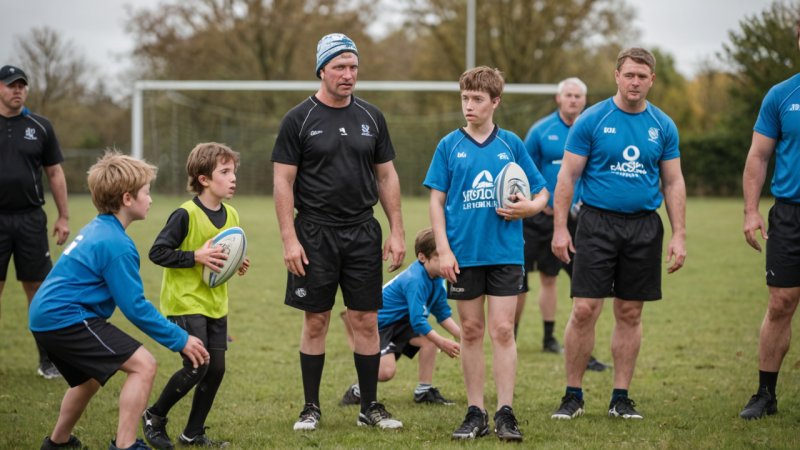Youth football and rugby are not just about competition; they are also about learning, growth, and, most importantly, safety. As parents, your involvement can significantly influence your child's experience in these sports. Here are some key ways you can promote safety for your young athletes.
1. Educate Yourself on the Rules
Understanding the rules of football and rugby is essential for parents. Familiarize yourself with the regulations regarding safety equipment, tackling techniques, and injury prevention. This knowledge will empower you to advocate for your child’s safety on the field.
2. Promote the Use of Proper Protective Gear
Encourage your child to wear appropriate safety equipment, such as helmets, mouthguards, and pads. Make sure the gear fits properly and is regularly inspected for wear and tear. Proper protection not only reduces the risk of injury but also instills a sense of confidence in young players.
3. Communicate with Coaches
Establish open lines of communication with your child's coaches. Regularly discuss safety protocols, training techniques, and any concerns regarding player health. Coaches play a crucial role in ensuring the well-being of athletes, and your input can help foster a safer environment.
4. Encourage Safe Playing Techniques
Teach your child the importance of playing safely and using correct techniques. Whether it’s learning to tackle correctly in rugby or blocking safely in football, mastering these skills can significantly reduce the likelihood of injury. Reinforce these lessons at home and during practice.
5. Monitor Physical and Emotional Well-being
Be vigilant about your child’s physical and emotional health. If they express discomfort, pain, or anxiety about playing, take those feelings seriously. Encourage them to speak up about any issues they face, and be proactive in seeking medical advice if necessary.
6. Advocate for Safe Training Practices
Support your child's team in implementing safe training practices. This includes appropriate warm-ups, cooldowns, and hydration breaks. Safety should be a priority in every training session, and your advocacy can help ensure these practices are followed consistently.
7. Set a Good Example
As a parent, your attitude towards safety can influence your child’s perspective. Encourage a culture of safety by discussing its importance and modeling safe behaviors yourself. Show enthusiasm for safety measures and respect for the game to inspire your child.
8. Stay Informed on Health Guidelines
Keep abreast of the latest health guidelines and research regarding youth sports safety. Being informed about concussion protocols and injury management can help you make educated decisions about your child's participation in football or rugby.
9. Encourage a Positive Team Culture
Support a culture of teamwork and respect within your child’s team. Teach them about sportsmanship and the importance of looking out for one another. A positive environment not only enhances performance but also promotes safety among players.
10. Be a Supportive Presence
Attend games and practices regularly to show your support. Your presence can provide encouragement and a sense of security for your child. Being there not only fosters a deeper connection with the sport but also allows you to be an active participant in their safety journey.
In conclusion, as a parent, your role in promoting safety in youth football and rugby is vital. By educating yourself, advocating for proper practices, and maintaining open communication, you can help create a safer sporting environment for your child and their teammates. Remember, safety should always come first, ensuring that youth sports remain an enjoyable and rewarding experience.






